I probably tossed my toilet brush in the trash a few years ago after each use. I never thought about whether it is harmful to our environment or not.
But, if you are also like me, then bro, you need to be changed for the sake of a good and healthy environment.
As of now, I take this matter seriously and am doing some research to know whether toilet brushes are actually recyclable.
In this blog post, I’ll tell you everything you need to know about recycling toilet brushes, including where to take them and what materials they’re made of.
So if you’ve been wondering whether or not it’s environmentally friendly to recycle your old toilet brush, keep reading because this article will be surprising and full of shocking facts.
What Are Toilet Brushes Made Of?
I am sure once in a life you have wondered what those little toilet brushes are made of. So let me tell you that it turns out that they’re usually made of plastic with nylon bristles. In addition, the plastic handle is usually hollow, which makes it lightweight and easy to grip.
As for the bristles, they’re usually stiff and relatively dense to scrub away tough stains.
In some cases, the bristles may be infused with a cleaning solution or other substance to help break down soap scum or hard water deposits.
Regardless of the exact materials, toilet brushes are designed to withstand repeated use and exposure to harsh cleaning chemicals.
So next time you reach for that toilet brush, take a moment to appreciate all of the engineering that went into its design!
Are Toilet Brushes Recyclable?
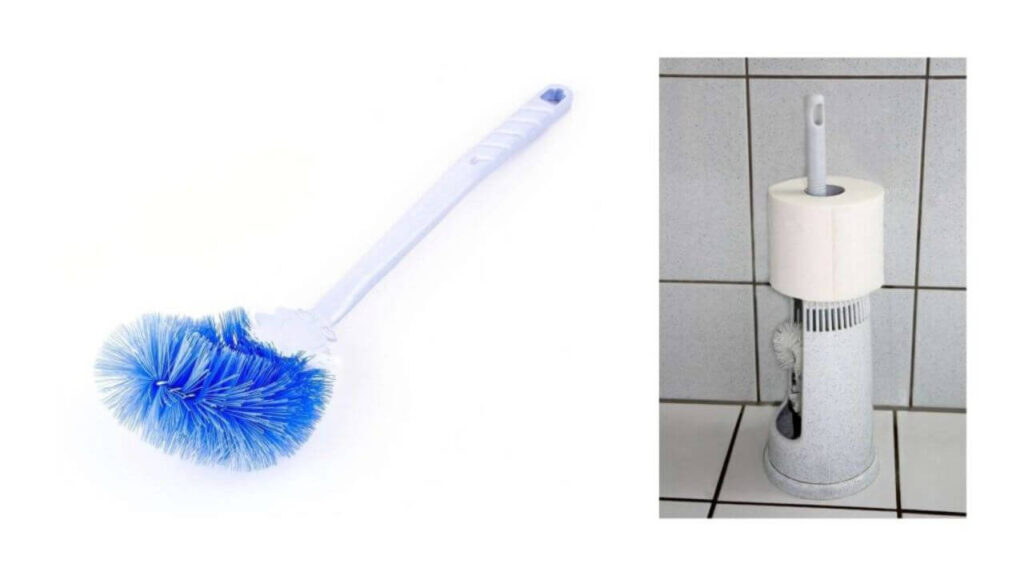
Generally, toilet brushes are recyclable! Most brushes are made from type 5 or 6 plastics, which can be recycled into new products like laundry detergent bottles, carpeting, and even automobile parts.
Yes, many of us might not give much thought to toilet brushes, but did you know that those plastic bristles eventually end up in landfill?
And because they’re made from petroleum-based plastics, they’ll take centuries to break down (horrible, right?).
So next time your toilet brush needs replacing, don’t toss it in the trash – recycle it instead. Your local recycling center will be happy to take it off your hands.
But you should know a few things before recycling your toilet brush. First, it’s essential to check with your local recycling center to see if they accept toilet brushes.
Some centers only accept brushes made of certain materials, so it’s best to call ahead and ask.
Second, even if your local center does accept toilet brushes, you may need to clean the brush before recycling it.
Remove all residual cleaner from the brush, which can contaminate other recyclables.
Finally, remember that recycling is only sometimes the best option – sometimes, it’s better to reuse your toilet brush until it wears out.
With some care, your toilet brush can last for years, so there’s no need to replace it unnecessarily.
Also Read:
Does Bamboo Toilet Paper Clog Pipes
Are Metal Toilet Brushes Recyclable?
As I mentioned, most people don’t think twice about their toilet brush (especially men). It’s just something that sits in the bathroom, collecting dust and grime.
But have you ever wondered if your toilet brush is recyclable, especially if it’s a metal toilet brush? The answer may surprise you.
Metal toilet brushes are made from recyclable materials and can be recycled at most recycling facilities.
But the answer depends on the type of metal used in the brush. If the brush is made of steel, then it can be recycled. However, if it’s made of aluminum, then it’s not currently recyclable. As a result, aluminum toilet brushes are usually disposed of in landfills.
However, the handles on metal toilet brushes are often made from non-recyclable plastic, so it’s essential to check with your local recycling center before putting one in the bin.
If you’re unsure whether your local center accepts metal toilet brushes, the best bet is to throw them in the trash.
However, with some research, you can be sure your toilet brush is appropriately recycled – and you may even help reduce your carbon footprint.
Are Wooden Toilet Brushes Recyclable?
Toilet brushes are one of those items that we all use but probably don’t overthink.
Most of us grab whatever is on sale at the store without considering what it’s made of or where it will end up once we’re done with it (It sounds selfish, but many people will agree with me).
But believe me or not, the material your toilet brush is made of can significantly impact the environment.
So, what’s the best choice when it comes to toilet brushes? Many consider wooden toilet brushes but are wooden toilet brushes recyclable? Let’s find out.
The good news is that wooden toilet brushes are indeed recyclable. Furthermore, they’re one of the more environmentally-friendly options since wood is a renewable resource.
However, there are a few things to remember if you’re recycling your wooden toilet brush.
First, make sure that the brush is completely clean before putting it in the recycling bin. Otherwise, you run the risk of contaminating other items in the bin.
Second, check with your local recycling center to see if they accept wood products; not all centers do.
And finally, if you can’t find a center that accepts wood products, see if there’s a local composting program that will take your brush.
I am pretty sure that once you start thinking about your toilet brush choices regarding environmental impact, you might switch to an eco-friendly option like bamboo!
Why do You need To Recycle Old Toilet Brushes?
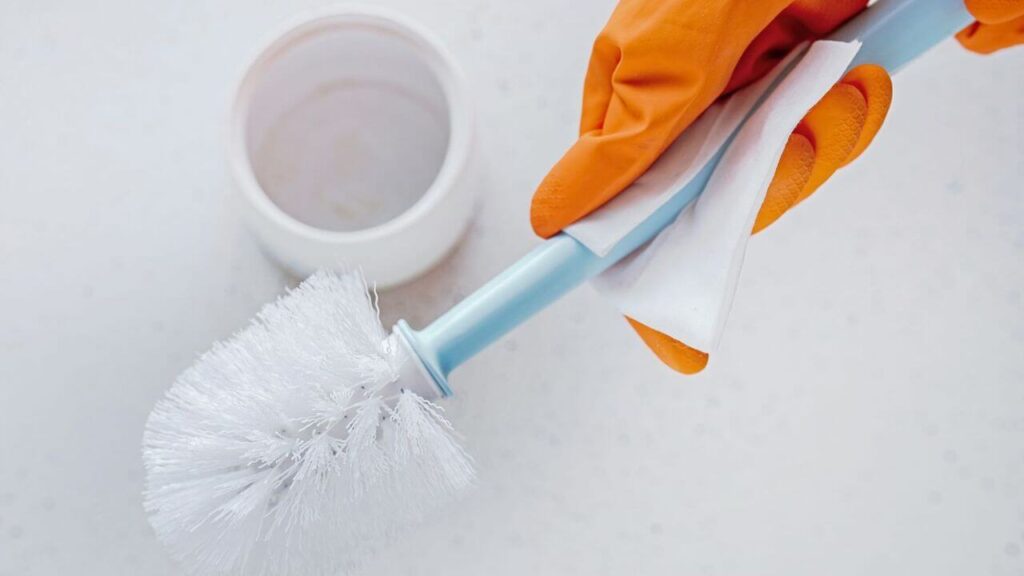
Many people have thought, why recycle old toilet brushes when we can buy another new one within a minute?
But let me tell you that recycling your old toilet brushes is beneficial for environmental and economic reasons.
For one thing, it keeps plastic out of landfills, preventing contamination and promoting a healthier environment overall.
It also helps reduce the energy needed to manufacture new products since recycled materials require less processing energy.
Furthermore, because recycled materials are cheaper than those from virgin sources, companies can save money by using them in their products.
These cost savings can then be passed on to consumers through lower prices.
How Do You Recycle Toilet Brush?
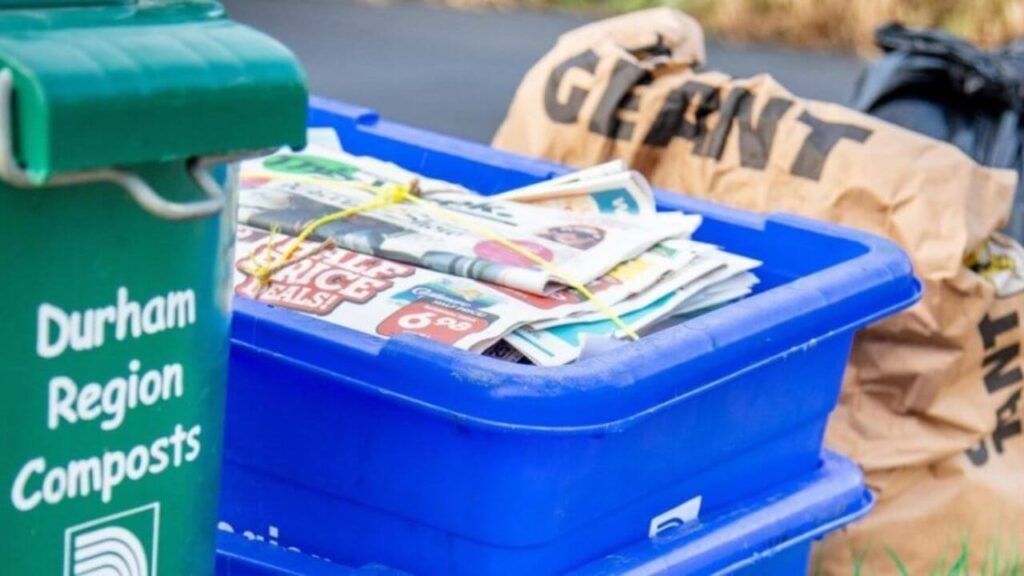
Recycling your old toilet brush can be an easy way to reduce plastic waste in landfills and help preserve our planet’s resources for years.
By following these simple steps, you can rest assured knowing that your old toilet brush won’t end up clogging up landfills. But instead be given new life as something else entirely!
Here’s a step-by-step guide on how you can recycle your toilet brush.
Step 1: Choose a Recycling Facility
The first step in recycling your toilet brush is finding a recycling facility that will accept your item.
Some local waste disposal companies offer special collection services for items. Such as old toothbrushes and combs, so check with them first.
If they don’t offer this kind of service, try looking online for a company that does.
Many businesses out there specialize in accepting and recycling all types of household items.
Step 2: Remove the Bristles
Once you have found a suitable facility to take your old toilet brush, the next step is to remove the bristles from the handle.
This will help ensure that the bristles don’t end up in landfills where they would take centuries to decompose.
You can easily do this by simply pulling them off with pliers or scissors – be careful not to damage the handle!
Step 3: Separate Components
Now that you have removed the bristles from the handle, you need to separate these components further so they can be recycled.
The bristles should go into one container, while the handle should go into another container – make sure you label each container clearly!
This will help ensure that the two components are recycled properly without contaminating each other and becoming unusable for future purposes.
Eco-Friendly Alternatives Of Toilet Brushes
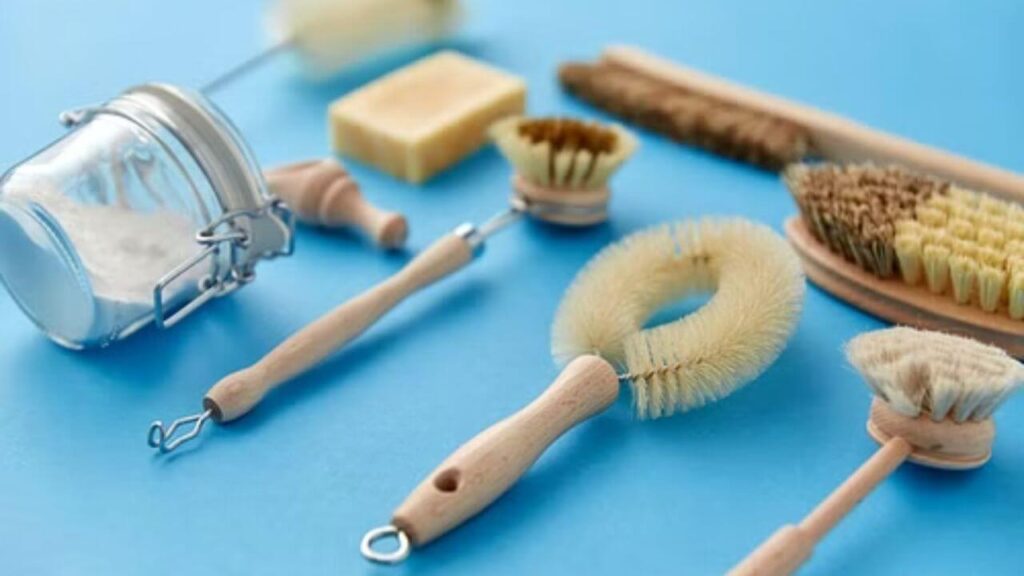
I know toilet brushes don’t usually get much of a mention in conversations about eco-friendly products. But did you know there are some great eco-friendly alternatives to traditional plastic toilet brushes?
These green options provide excellent cleaning power without the added environmental stress of plastic manufacturing and disposal.
So, what are these eco-friendly alternatives to toilet brushes? Let’s take a look!
Silicone Toilet Brushes
Silicone toilet brushes are becoming increasingly popular as an eco-friendly alternative to plastic ones.
Silicone is a naturally occurring element that doesn’t contain any chemicals or toxins and is also resistant to bacteria and fungi growth.
Additionally, silicone can be cleaned easily with water, so it won’t require harsh chemical cleaners to keep it hygienic.
And when you’re done using your silicone toilet brush, you can throw it in the dishwasher for easy cleaning.
Bamboo Toilet Brushes
Bamboo is another great natural material that has been used for centuries as an affordable and sustainable. Bamboo is lightweight, solid, and durable, making it perfect for use in toilet brushes.
It’s also naturally anti-microbial and hypoallergenic, so it won’t cause any skin irritation or allergies when used in the bathroom.
Plus, bamboo is biodegradable, which breaks down quickly and safely when disposed of properly.
Coconut Fiber Toilet Brushes
Coconut fiber is one of the most sustainable materials available today, making it an excellent choice for a natural toilet brush alternative.
In addition, coconut fibers are incredibly absorbent and have antifungal properties, which make them perfect for use in bathrooms where moisture levels can be high.
Plus, coconut fibers are biodegradable, so they won’t contribute to landfill waste like plastic toilet brushes.
Wooden Toilet Brushes
Wooden toilet brushes are another excellent choice if you’re looking for something natural but don’t like the idea of bamboo or coconut fibers.
Wooden toilet brushes have a classic look that will blend into any bathroom decor while effectively cleaning your toilet bowl.
Most wooden brushes come with replaceable heads, so you don’t need to worry about replacing the entire brush when it gets worn out—pop off the head and replace it with a new one.
Things To Consider While Choosing Eco-Friendly Toilet Brushes
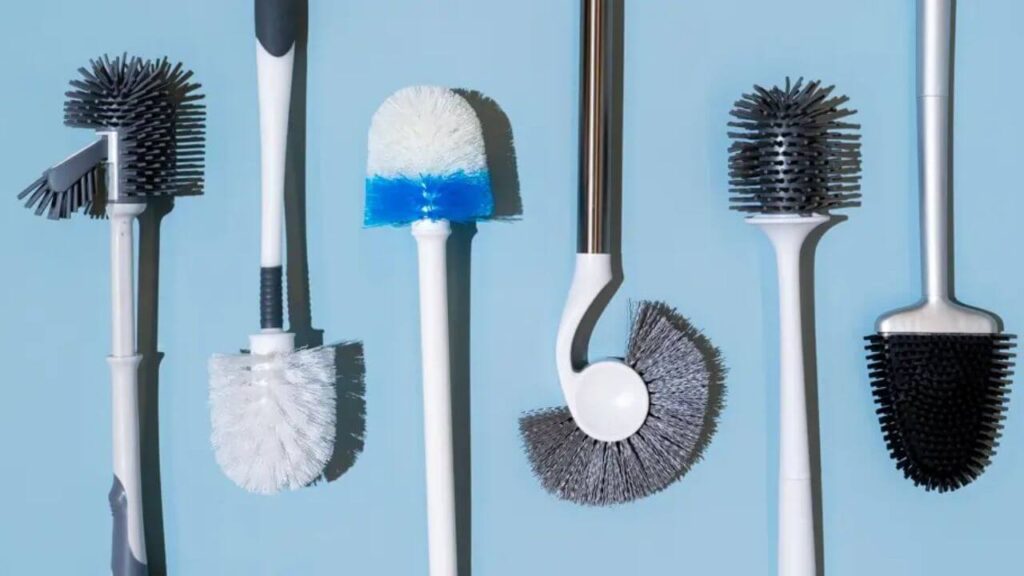
Toilet brushes are an essential part of keeping your bathroom clean and hygienic.
But did you know that a regular toilet brush is not the most eco-friendly option? There are many things to consider when choosing an eco-friendly toilet brush, from its materials to how it’s manufactured.
Let’s look at why choosing an eco-friendly toilet brush is essential and what to look for when shopping.
Materials
The materials used in the manufacturing process can significantly impact the environment.
For example, regular plastic toilet brushes are made from petroleum-based products, which can be damaging to the environment during production and disposal.
Look for eco-friendly alternatives such as bamboo, a renewable resource that biodegrades quickly. In addition, bamboo is naturally antibacterial and antimicrobial so it won’t harbor bacteria like plastic can.
Manufacturing Process
It’s also important to consider how your toilet brush was made.
Look for brands that use sustainable production methods such as recycled or reused materials where possible and avoid those that use toxic chemicals or wasteful practices such as overpackaging.
Additionally, ensure that any manufacturer you buy from is transparent about their production process so you can be sure they are doing their part for the environment.
Packaging
Also, remember to check the packaging of your eco-friendly toilet brush! Make sure the packaging is recyclable or compostable if possible so that it doesn’t end up in a landfill after use.
Additionally, try to avoid single-use plastics wherever possible; many brands now offer reusable containers or recycled paper packaging instead of plastic wraps or bags.
Bristles
The bristles on your toilet brush have a significant impact on its environmental friendliness as well.
Natural fibers such as sisal or coconut fiber are best because they’re biodegradable and compostable.
Synthetic bristles like nylon can also be used, but they won’t break down as quickly and can leach microplastics into our waterways when washed away in sewage systems.
So when shopping for an eco-friendly toilet brush, always check the label to ensure it has natural bristles rather than synthetic ones.
Handle Design
The handle of your toilet brush also matters regarding environmental friendliness; look for brushes with handles made from sustainable materials like bamboo or wood instead of plastic or metal.
This will help ensure that the brush can be reused over time without having to be replaced—which means less waste!
Additionally, some brushes come with removable heads or handles so that you can replace them when needed instead of throwing out the whole thing.
This is another excellent way to reduce waste while still getting the job done effectively.
Durability
Eco-friendly toilet brushes should also be designed to last. Many companies now offer models with replaceable heads, so you don’t have to buy a new brush every few months.
This not only reduces waste but also ensures that you get optimal cleaning performance over time, cutting down on water and chemical usage.
If you opt for a single-use model, make sure it is made from high-quality materials that won’t break down quickly or need to be replaced frequently.
Cleaning Solutions
When buying an eco-friendly toilet brush, it’s essential to think beyond just the physical product itself and consider what cleaning solutions will require to be effective at their job.
Look for natural cleaning solutions that use plant-based ingredients rather than harsh chemicals, which can damage both your health and the environment over time.
Natural cleaners are usually more potent than their chemical counterparts and will help ensure that your toilets stay spick and span without endangering yourself or the planet.
Bottom Line
In the end, I want to say this. It’s essential to be proactive about sustainability and do our part to reduce waste, but it’s also important not to beat ourselves up if we don’t have all the answers.
Sometimes the most sustainable thing we can do is make our best effort with the information we have at the time.
For example, if you use a toilet brush, consider whether or not it’s recyclable in your area – and if not, see if there’s another way you can recycle or reuse it.
And next time you go shopping for a bathroom cleaning product, look for one without packaging or with minimal packaging that can easily be recycled.
